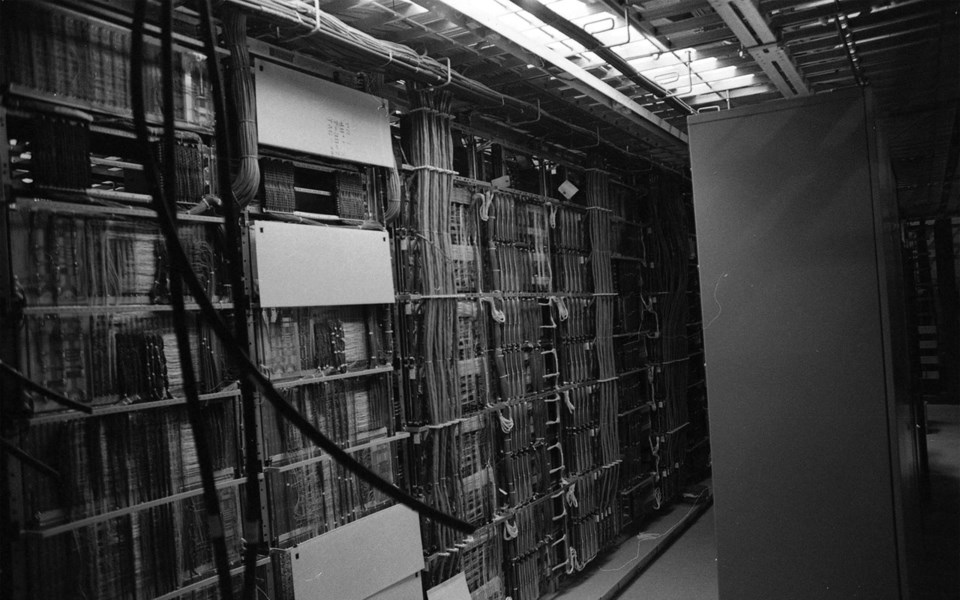Today, we take the ability to receive or make a call for granted, but for those preparing to open Blackcomb Mountain in 1980 it would not have been as easy as picking up the phone.
It appears that months before the mountain was set to begin operations, its phone system was already under stress. In the first week of March, the Whistler Question reported that “Blackcomb Skiing Enterprises were growling a lot on Saturday, when their only overworked telephone was out of action for the eighth time this year!”
For the small team working out of the Blackcomb offices in construction trailers on the Town Centre site, the phone system was operational for the summer, but that didn’t mean Blackcomb wasn’t still having some telephone woes.
On July 17, 1980, all union work on the Town Centre site (including the operation of the liquor store) stopped as the Telecommunications Workers Union (TWU) set up picket lines for two days. The dispute was over telephone lines and a power line being installed from the valley to the buildings at the top of the first lift by Blackcomb workers.
Blackcomb wanted the lines installed on a weekend, as they had to cross 11 different road crossings on their way up the mountain, which would have stalled or stopped other construction work happening during the week. BC Tel claimed that they couldn’t supply workers to install the lines on the weekend due to a ban on overtime by the union, while the TWU claimed they were willing but that BC Tel refused to schedule overtime. Relations between BC Tel and the TWU had remained tense since a lockout and labour dispute a few years earlier.
In 1979, BC Tel and the TWU had failed to reach an agreement on the 1980 contract and by July, the TWU had begun a “Super Service” campaign where they provided customer service while working to every rule and regulation, including ones that were usually deemed non-essential, thereby slowing down productivity. On Sept. 22, the TWU began selective strikes, where construction and other workers would report to work but refuse all assignments except emergency repairs. This included the pre-wiring of communication lines in new buildings, creating a backlog of construction jobs.
For Blackcomb Skiing Enterprises, which was meant to move to its permanent offices at the top of Lift 1 in December, this presented a problem. They had managed to get lines laid to the building, but the ongoing labour dispute meant that they could not get TWU workers in to set up the individual office lines. Instead, Lorne Borgal, Blackcomb’s administrative manager, got to take a crash course in phone installation.
According to Borgal, the TWU was able to install phone blocks, but they could not do the wiring. A local phone company employee showed Borgal how it worked and he was left to wire phones for each of the offices, most of which had three separate lines.
The building had a room where all of the cables came up from the main line and then split up to the various offices and, by the time he was done, Borgal described the contents of the room as a “big mass of wires” coming out from the wall by almost a metre.
Protection was built around the mass to prevent anyone from accidentally touching it and shutting down all the phones, as it was thought the wires could fall out.
Despite his inexperience (as Borgal put it, he was “not a phone guy, at all”) the phones were operational for Blackcomb Mountain’s opening.
Eventually the TWU workers were able to return to the building and install the phone lines properly, putting an end to Blackcomb’s phone problems. When shown the room of wires, the workers howled with laughter and, according to Borgal, he laughed right along with them.




